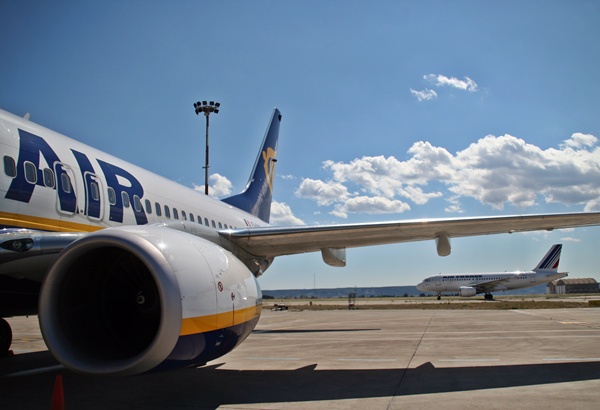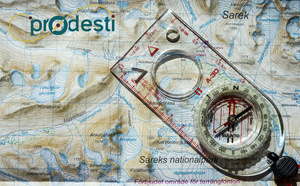
Let’s remember that during that time and up to 2005, traditional airline companies literally filled their pockets with their medium-haul operation.
A good reason to avoid making the necessary internal reforms since the European “medium-haul” market largely subsidized “long-haul” operations.
Yet that didn’t prevent those same companies from reducing their service quality because they absolutely did not believe that the new transporters could take up a portion of their clientele.
Leading to passengers suffering a double penalty: a service reduced to its most basic quality with still very high prices.
In fact, this reality did not bother traditional transporters since they were convinced that only “backpackers”, as they called them, would use the “low cost” companies.
Except that clients are not stupid. They eventually realized that the “miles” did not compensate for the price difference of a product that had become identical, at least in Europe.
A good reason to avoid making the necessary internal reforms since the European “medium-haul” market largely subsidized “long-haul” operations.
Yet that didn’t prevent those same companies from reducing their service quality because they absolutely did not believe that the new transporters could take up a portion of their clientele.
Leading to passengers suffering a double penalty: a service reduced to its most basic quality with still very high prices.
In fact, this reality did not bother traditional transporters since they were convinced that only “backpackers”, as they called them, would use the “low cost” companies.
Except that clients are not stupid. They eventually realized that the “miles” did not compensate for the price difference of a product that had become identical, at least in Europe.
Are long-haul flights safe from the “low cost” model?
Autres articles
-
 Vueling, première low cost au monde à proposer le Travel Pass IATA
Vueling, première low cost au monde à proposer le Travel Pass IATA
-
 Thomas Juin (UAF) : "L’avion reste et restera un mode de transport pertinent..."
Thomas Juin (UAF) : "L’avion reste et restera un mode de transport pertinent..."
-
 Rétrospective 2018 : l’hécatombe des compagnies low-cost
Rétrospective 2018 : l’hécatombe des compagnies low-cost
-
 Aeroport de Bordeaux-Mérignac: le terminal low-cost fermé
Aeroport de Bordeaux-Mérignac: le terminal low-cost fermé
-
 transavia : ouverture d'une nouvelle ligne Orly - Olbia (sardaigne)
transavia : ouverture d'une nouvelle ligne Orly - Olbia (sardaigne)
Furthermore, these traditional companies made sure that these famous “miles” could only be used very sparingly.
In fact, they have estimated that only 40% of the primes awarded were eventually used up. That is still the case.
Eventually, clients did not accept any longer to pay such outrageous prices leading to historical transporters having to more or less align their rates to that of “low-costs.”
Mike Conway, CEO of America West Airlines, had premonitorily announced it, in 1996 during a Canne Airlines Forum, under the mocking remarks of some audience members.
And then, large companies had to get into this type of operation.
It was done, and is still done, without pain.
But finally, British Airways was able to grasp Vueling, Lufthansa with Germanwings and Eurowings, and Air France/KLM developed Transavia.
And traditional companies transferred all of their hopes to the long-haul, because at least there they’d be preserved from the “low cost” model because “we assure you that what did work on the short-haul cannot, in any case, be transposed to long-haul operations.”
In fact, they have estimated that only 40% of the primes awarded were eventually used up. That is still the case.
Eventually, clients did not accept any longer to pay such outrageous prices leading to historical transporters having to more or less align their rates to that of “low-costs.”
Mike Conway, CEO of America West Airlines, had premonitorily announced it, in 1996 during a Canne Airlines Forum, under the mocking remarks of some audience members.
And then, large companies had to get into this type of operation.
It was done, and is still done, without pain.
But finally, British Airways was able to grasp Vueling, Lufthansa with Germanwings and Eurowings, and Air France/KLM developed Transavia.
And traditional companies transferred all of their hopes to the long-haul, because at least there they’d be preserved from the “low cost” model because “we assure you that what did work on the short-haul cannot, in any case, be transposed to long-haul operations.”
Transatlantic: “low costs” are emerging…
Sure, but once again, they were forced to eat their hat. The long-haul trafic takes place on three major axes: the Transatlantic, Africa and the Indian Ocean, and Asia. Yet, for the last two markets, the product of European companies is no longer satisfactory.
The level of products has been raised by Gulf transporters that are progressively draining the high-end clientele.
All that's left is the Transatlantic, the major axis of European companies.
For now, product competition is not a reality because American transporters have a service level even lower than that of European companies. But we’re starting to see “low costs” emerge.
The offensive was launched by Norwegian that believes could operate profitably between London and the North American East Coast with “long range” B 737 aircrafts. Without a doubt, it will be followed by Ryanair that already reaffirmed its intentions.
And, a dramatic turn of events, even the honorable Lufthansa is engaging in a battle with its branch Eurowings equipped for that purpose with long-haul aircrafts, through a launching price of €99 to cross the atlantic.
It is inevitable that the “low cost” model will also take over long-haul flights. Sure, the damages won’t be as devastating to traditional transporters compared to what happened to them in Europe.
But they will be forced to find a differentiating product that will justify the price gap, should they wish to keep on existing.
And the transatlantic challenge will be even harder since Gulf companies will also try to be part of the game. There is one “low cost” transporter in France: XL Airways. It is quite fragile at the moment. Public authorities should strongly be inspired to help out the company.
The level of products has been raised by Gulf transporters that are progressively draining the high-end clientele.
All that's left is the Transatlantic, the major axis of European companies.
For now, product competition is not a reality because American transporters have a service level even lower than that of European companies. But we’re starting to see “low costs” emerge.
The offensive was launched by Norwegian that believes could operate profitably between London and the North American East Coast with “long range” B 737 aircrafts. Without a doubt, it will be followed by Ryanair that already reaffirmed its intentions.
And, a dramatic turn of events, even the honorable Lufthansa is engaging in a battle with its branch Eurowings equipped for that purpose with long-haul aircrafts, through a launching price of €99 to cross the atlantic.
It is inevitable that the “low cost” model will also take over long-haul flights. Sure, the damages won’t be as devastating to traditional transporters compared to what happened to them in Europe.
But they will be forced to find a differentiating product that will justify the price gap, should they wish to keep on existing.
And the transatlantic challenge will be even harder since Gulf companies will also try to be part of the game. There is one “low cost” transporter in France: XL Airways. It is quite fragile at the moment. Public authorities should strongly be inspired to help out the company.

























![De l’auberge de jeunesse au Generator : toute une histoire [ABO] De l’auberge de jeunesse au Generator : toute une histoire [ABO]](https://www.tourmag.com/photo/art/large_16_9/93247694-65219608.jpg?v=1765984636)















